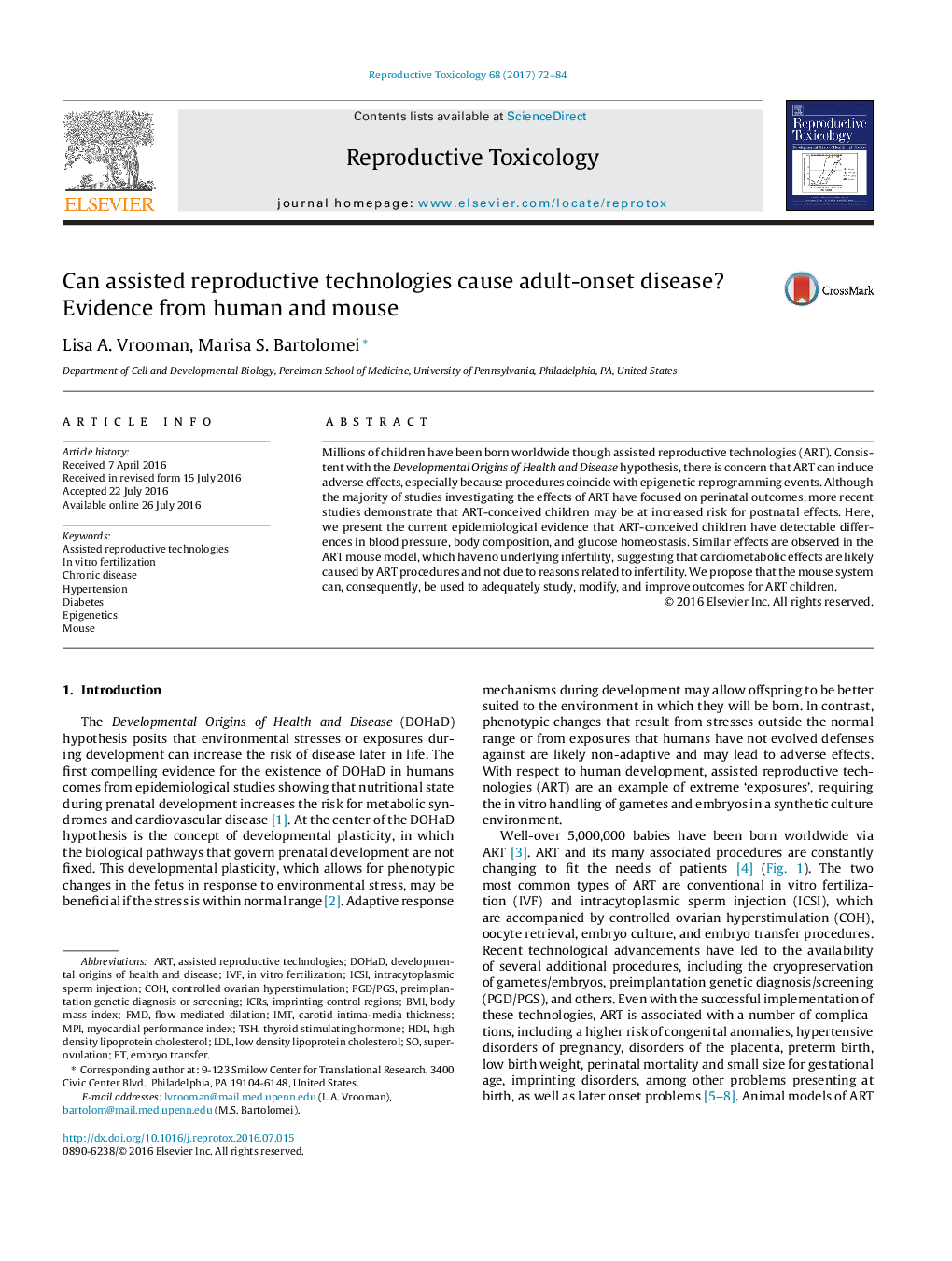| Article ID | Journal | Published Year | Pages | File Type |
|---|---|---|---|---|
| 5561638 | Reproductive Toxicology | 2017 | 13 Pages |
Millions of children have been born worldwide though assisted reproductive technologies (ART). Consistent with the Developmental Origins of Health and Disease hypothesis, there is concern that ART can induce adverse effects, especially because procedures coincide with epigenetic reprogramming events. Although the majority of studies investigating the effects of ART have focused on perinatal outcomes, more recent studies demonstrate that ART-conceived children may be at increased risk for postnatal effects. Here, we present the current epidemiological evidence that ART-conceived children have detectable differences in blood pressure, body composition, and glucose homeostasis. Similar effects are observed in the ART mouse model, which have no underlying infertility, suggesting that cardiometabolic effects are likely caused by ART procedures and not due to reasons related to infertility. We propose that the mouse system can, consequently, be used to adequately study, modify, and improve outcomes for ART children.
